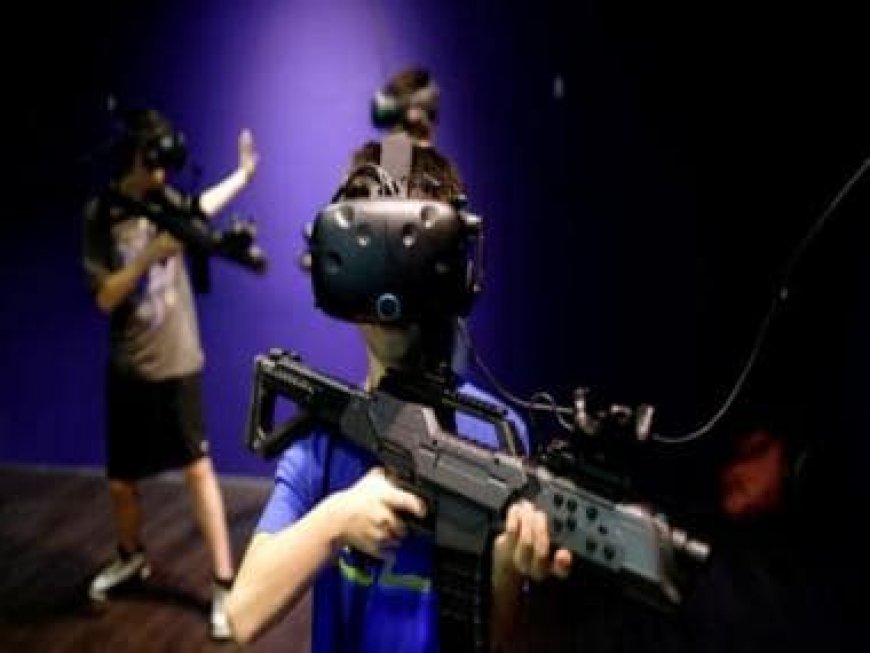‘Phantom Touch’: Predators exploit VR to prey on kids; victims describe sensations of 'online' physical contact
‘Phantom Touch’: Predators exploit VR to prey on kids; victims describe sensations of 'online' physical contact

A recent study revealed that Child predators are now using virtual reality to target young children in UK and some of the victims even describe the sensation of being touched without their consent.
A research report commissioned by the NSPCC charity has unveiled various forms of exploitation within these immersive online environments, casting a significant challenge for law enforcement and efforts to safeguard vulnerable youngsters.
Virtual reality, where users don a headset to enter digital realms, often engaging with others online, has opened new avenues for offenders to commit their crimes.
Sumaiya Zahoor, the NSPCC’s policy officer for child online safety, explained that the growing use of haptics in virtual reality devices, which employ vibrations and other forces to provide physical feedback to users, intensifies experiences. However, it also intrudes more than expected.
In addition to the “phantom touch,” the Child Safeguarding & Immersive Technologies report outlines how abusers employ avatars to desensitize victims and normalize their harmful behavior.
One victim shared their ordeal, revealing the lasting psychological scars: “It was so normal for the offender to have relationships with minors, in the bubble that we lived in. I came out of that situation with severe trust issues, and I am not sure when things will go back to normal.”
Deceptive visuals play a crucial role in empowering offenders. Cartoonish visuals prevalent in many virtual reality experiences create approachable avatars, leading children to believe they are conversing with peers.
Zahoor expressed concern, stating, “That’s really where the concern is – parents and children might look at those graphics and be thinking this is completely safe and appropriate.”
Offenders are also using virtual spaces to establish “communities” where they share abusive content with one another.
The UK’s Online CSA Covert Intelligence Team, dedicated to exposing such criminal activities, contributed to the report and emphasized the immense challenge that virtual reality and the metaverse pose for law enforcement and the protection of vulnerable individuals.
Richard Collard, head of child online safety policy at the NSPCC, emphasized the significance of forthcoming legislation to combat online harms.
The Online Safety Bill, which has faced numerous delays, is currently being debated in the House of Lords as parliament resumes after the summer break. Tech companies and privacy campaigners have criticized the bill, with WhatsApp and Signal even considering leaving the UK if compelled to comply.
Mr. Collard, however, stressed the urgency of addressing these shocking findings, saying, “These shocking findings should be a wake-up call to us all about the harm young people are facing when engaging with immersive technology. Technology will continue to progress, and so must we to ensure that we can understand the existing and emerging risks that young people face in these virtual spaces.”
The report, prepared by research firm Limina Immersive, highlights the need for continuous review of the Online Safety Bill to remain effective against new risks. It also calls for increased funding and guidance for law enforcement in dealing with simulated offenses in virtual settings.
What's Your Reaction?



























































